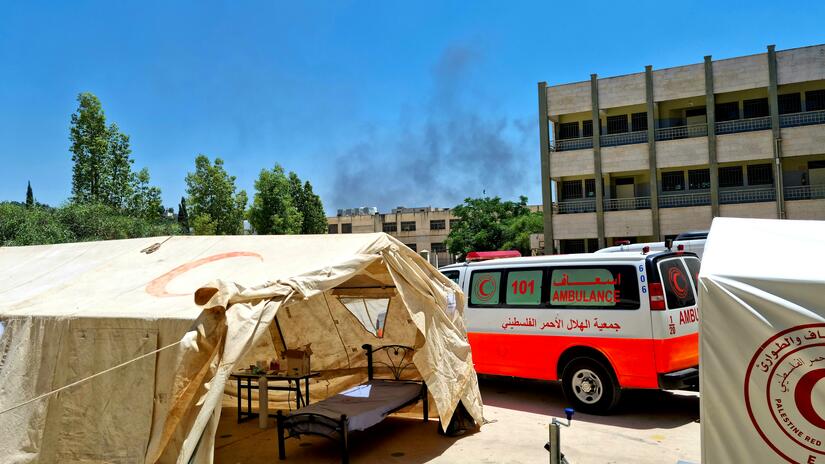West Bank / Gaza / Geneva 12 November 2021 – The International Federation of Red Cross and Red Crescent Societies (IFRC) is extremely concerned about the worsening humanitarian situation in Palestine. Palestinians are facing a multitude of crises, including persistent escalations of violence, a socio-economic breakdown and the COVID-19 pandemic in the context of a protracted conflict and occupation.
Critical infrastructure, including the power and water supply, is eroding in many areas. Millions of people are unable to cover their most basic needs because of serious shortages of food, water, fuel, and medicines, among other essential supplies, especially in Gaza, as a result of the continued blockade. According to OCHA, more than 2.4 million people are in need of humanitarian assistance.
Speaking at the end of his visit to the Gaza strip and the West Bank, IFRC President Francesco Rocca said:
“I am deeply concerned about the humanitarian situation in Palestine: too many overlapping crises are pushing local communities to their limits. I am always impressed by the critical work done by the Palestine Red Crescent teams: from the emergency medical services to social and inclusion activities, they are a key humanitarian actor. I was particularly inspired by the visit to their centres for children with disabilities both in Gaza Strip and West Bank. These centres embody the real meaning of humanity: without PRCS these children would be left behind. The world has a moral duty to strengthen humanitarian support in Palestine and invest in local actors like the Palestine Red Crescent.”
Palestine Red Crescent Society (PRCS) continues to be the leading provider of emergency medical services in Palestine, operating five hospitals and providing ambulance and first aid services. For decades, the International Red Cross and Red Crescent Movement has supported the Palestine Red Crescent Society to respond to the immense needs of the most vulnerable people.
During the visit, President Rocca signed the IFRC legal status agreement with the Minister of Foreign Affairs of Palestine: a standard procedure when the IFRC establishes an office with international staff to strengthen the operations of a national Red Cross or Red Crescent Society.
IFRC President Rocca said:
“Signing of the status agreement is verification for our long-term commitment to support PRCS and the people in Palestine. As per our humanitarian principles, we continue providing humanitarian relief to the people based on their vulnerabilities and needs, without discrimination as to nationality, race, religious beliefs, class or political opinions.”
Dr. Younis al-Khatib, PRCS President, said:
“The signing of the legal status agreement is a manifestation of the long-standing support and solidarity of IFRC with PRCS. The staff and volunteers of PRCS are always happy to meet with President Rocca and be inspired by his unwavering support and praise for the volunteers of our Movement.”
IFRC is committed to supporting the PRCS in its humanitarian mandate to deal with the acute and protracted consequences of occupation, violence, disasters, and crises.
IFRC together with the other Red Cross and Red Crescent partners continue to enhance the preparedness and response capacities of PRCS’ medical services, scale up their COVID-19 response activities, provide medical items, medicines and personal protective equipment, and replace old and out-of-service ambulances.
To request an interview or for more information, please contact:
In Geneva: Tommaso Della Longa, IFRC, +41 79 708 43 67, [email protected]
In Beirut: Jani Savolainen, IFRC, +961 70372812, [email protected]
In Ramallah: Mamoun Abbasi, PRCS, +970 595606096, [email protected]

